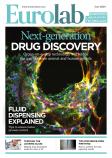AMS Bio has supplied custom lentivectors to Francesco Pampaloni and his team at the Buchmann Institute for Molecular Life Sciences (BMLS) in Frankfurt, Germany allowing them to visualise cell nuclei and F-actin cytoskeleton in their organoids.
Organoids are morphologically heterogeneous three-dimensional cell culture systems that provide an ideal model for understanding the principles of collective cell behaviour in mammalian organs during development, homeostasis, regeneration and pathogenesis. To investigate the underlying cell organisation principles of organoids, BMLS researchers imaged hundreds of pancreas and cholangiocarcinoma organoids in parallel using microscopic techniques.
As a result of this pioneering work BMLS researchers were able to monitor development and quantify the behaviour of organoids at the single-cell (microscale), individual-organoid (mesoscale), and entire-culture (macroscale) levels. These detailed individual organoid quantifications have helped BMLS to produce a mechanical 3D agent-based model for the pancreas and cholangiocarcinoma organoids under study.
Michael Koch, a Ph.D. student within the BMLS research group said: “As epithelial organoids have a stem cell-like character, which makes them difficult to transduce, they require optimised transduction protocols. AMS Bio's custom high-titre lentiviral particles offered us an ideal solution to this issue. By labelling (epithelial) organoids with H2B-eGFP and LifeAct-mCherry, using the lentivectors/lentiviral particles, we were able to study dynamic cellular processes in organoid development (by light sheet microscopy/LSFM) over several days with a stable fluorescence signal. These custom lentivectors enabled us to gain intricate insights into highly dynamic processes in epithelial organoid development like formation, polarisation, and luminal expansion."
AMS Bio's lentiviral system is a novel gene delivery tool using lentivectors for gene expression or knockdown. Lentivirus can effectively transduce both dividing and non-dividing mammalian cells, and integrate into the host genome, allowing stable long-term, high-level gene expression both in vivo and in vitro. Unlike traditional retroviral system, this lentivirus is much more actively imported into the nuclei of non-dividing cells and stably integrated into the host cell's genome independent of cell cycle.








